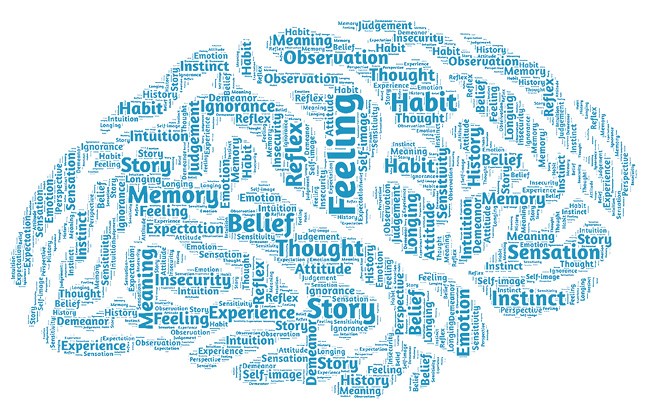In the HBO TV series Westworld, androids are programmed to play characters in a theme park set in the Wild West. Imagine a Disneyland not suitable for children. The robots believe their world is real and that they themselves are human and have free will. Meanwhile, they are used and abused by visitors to the park and their programmers.
Complications arise when one of the androids begins to question her reality and learns to hack into her own programming.
Have you ever questioned your “reality” and how you see your world? Have you reflected on some of your most deeply held beliefs, thought about where they came from and recognized that some may no longer work for you?
Have you ever struggled with habits of behaviour, such as overeating, smoking, making the same mistakes or repeating old arguments? We all have, and we know how difficult it can be to break out of old habits and stick to a better, healthier and happier routine.
Don’t worry. Westworld is science fiction, and you are not a robot.
You are human, a biologic organism that has forgotten that its brain and nervous system are the products of millions of years of evolution. Our thoughts, emotions, behaviours and physical sensations are products of this complex nervous system.
The emotions that we share with all other humans (and countless other animals) have served important functions and helped our species to survive. Our emotions can shape and limit our thoughts and trigger instinctive behaviour. Our brains have evolved to learn and reinforce repeated patterns of thought and behaviour.
Donald Olding Hebb, a Canadian psychologist was a pioneer of neuropsychology. He studied how neurons (the primary cells of our brains and the rest of the nervous system) contributed to psychological processes, including learning. Dr. Hebb coined the expression, “Neurons that fire together wire together.”
What he was describing was neuroplasticity, the amazing ability of the brain to change itself. It isn’t the sheer numbers of neurons in our brains that allow us to imagine, learn, create and perform complex activities, but rather the connections between neurons.
Neurons have specialized projections called axons and dendrites. Dendrites import information into the body of the neuron and axons export that information away to other neurons across synapses the junctions where information passes from one neuron to another. When you learn new things, your neurons develop more axons and synapses, increasing their connection to networks of other neurons.
The more you practise a new thought or action the more a particular network of neurons is strengthened, their connections reinforced. That is why what you frequently dwell upon becomes your inclination. How often do you find yourself thinking the same thoughts?
Early assumptions when reinforced over time become core beliefs about who you are, how the world works and how you relate to others. Repeated behaviours become habits. Over time, they seem to be hardwired.
This is why you can find your way home each day without a GPS, why you don’t have to relearn riding a bike or relearn how to read every time you pick up a book. It’s an amazingly efficient system.
Ironically this phenomenon that evolved to help us learn can prevent us from breaking out of old patterns of thought and behaviour even when we know they are no longer helpful. Remember after moving to a new home, lost in thought, you found yourself halfway to your old home? Neuroplasticity becomes neurorigidity.
So how do you hack your own brain, erase outdated programs and update your software with a program update?
You won’t get an onscreen sign offering the update. You have to listen for that self-aware android feeling that something’s not right: you recognize that how you see the world doesn’t seem to be working and isn’t making you any happier; you find yourself stuck in negative emotions such as depression, anxiety or anger; or you keep repeating the same mistakes, habits and behaviours that aren’t helping you or anyone else.
In my next columns, we’ll explore positive neuroplasticity: practical and proven strategies that anyone can use to challenge self-defeating beliefs and thoughts, manage your emotions and adopt healthier habits.
Davidicus Wong is a family physician and his Healthwise columns appear regularly in this paper. For more on achieving your positive potential in health, see his website at davidicuswong.wordpress.com.



